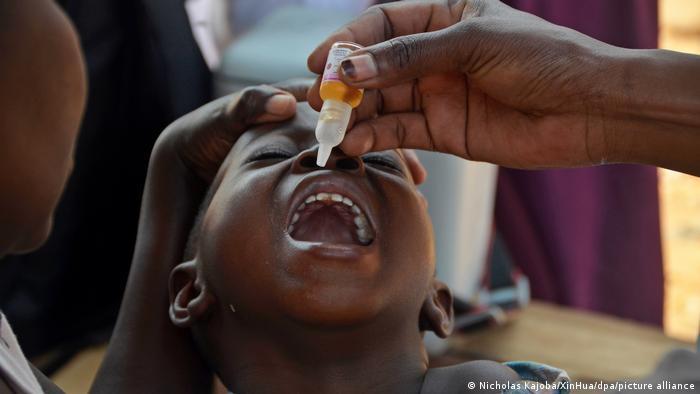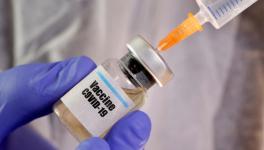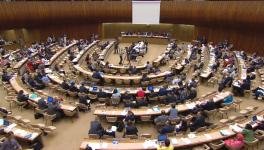Malawi: First Polio Outbreak Since Africa Declared Polio-free

Africa was declared polio-free in August 2020
Malawi has reported an outbreak of wild polio two and a half years after Africa was declared free of the virus, the World Health Organization (WHO) said on Thursday.
Health authorities in the southeast African country detected one case of type 1 wild poliovirus in a young child in the capital Lilongwe.
Laboratory analysis linked the strain to one that has been reported in Sindh Province in Pakistan, where polio remains endemic, the WHO said. Afghanistan is the only other country with endemic polio.
Because it is an imported case from Pakistan, Africa will not lose its polio-free certification status, the WHO added.
The last case of wild polio virus in Africa was identified in northern Nigeria in 2016, said Modjirom Ndoutabe, polio coordinator in the WHO Regional Office for Africa, in a press statement. There were only five cases globally in 2021.
Africa has been considered free of polio since August 2020.
For a country to be certified polio-free, it must have had no wild polio cases for three consecutive years.
Polio risk ongoing
No country is immune to imported cases of polio, Matshidiso Moeti, the WHO's regional director for Africa, said in a press statement.
"As long as wild polio exists anywhere in the world all countries remain at risk of importation of the virus," Moeti said.
The coronavirus pandemic may have also caused some young children to miss their polio vaccinations, Nicola Stonehouse, a professor of molecular virology at the University of Leeds in the UK, told DW.
The WHO is helping to supplement vaccinations in Malawi, as well as support the risk assessment and outbreak response and ramp up surveillance of polio in neighboring countries.
What is polio?
Polio is a highly transmissible virus most often spread via the stool of an infected person, usually through contaminated water or food. It can also be spread via oral or nasal secretions. The virus mainly affects children under five years of age.
There is no cure for the symptoms of polio. Most people infected with the virus have no symptoms at all, according to the US Centers for Disease Control and Prevention (CDC). About one in four people will have mild symptoms that last two to five days, such as a sore throat, fever, fatigue, nausea, headache or stomach pain.
The virus usually stays in the gut, but when it spreads to other parts of the body it can cause more serious symptoms affecting the brain and spinal cord. These symptoms only occur in a small percentage of cases and can cause paralysis of some body parts, which can result in death if the breathing muscles become paralyzed, for example. This is known as paralytic polio.
Eradicating polio
There are three types of poliovirus. Polio type 2 is considered eradicated, but there is no cross-protection if a person has been infected with one type. This is why vaccination is the best protection, health officials say.
The first polio vaccines were developed in the 1950s, and vaccination programs have drastically reduced case numbers since. In the 1980s, the estimated number of paralytic polio cases worldwide was more than 350,000 per year. By 2016, there were just 42, according to Our World in Data.
Wild polio is a naturally occuring virus that circulates the population, whereas a small number of paralytic polio cases are caused by the oral polio vaccine.
This oral vaccine is still used in some regions because it is cheap and doesn't require a cold chain, which can be difficult to facilitate in some countries, said Stonehouse.
"When you're looking at Afghanistan and Pakistan, a lot of the problems are in those incredibly hard-to-reach areas in terms of physical geography — people who live in remote communities," Stonehouse told DW.
The most commonly used polio vaccine is administered through injection.
Once all wild polio has been eradicated, the oral polio vaccine will no longer be used, according to the WHO.
Edited by: Clare Roth
Get the latest reports & analysis with people's perspective on Protests, movements & deep analytical videos, discussions of the current affairs in your Telegram app. Subscribe to NewsClick's Telegram channel & get Real-Time updates on stories, as they get published on our website.



















